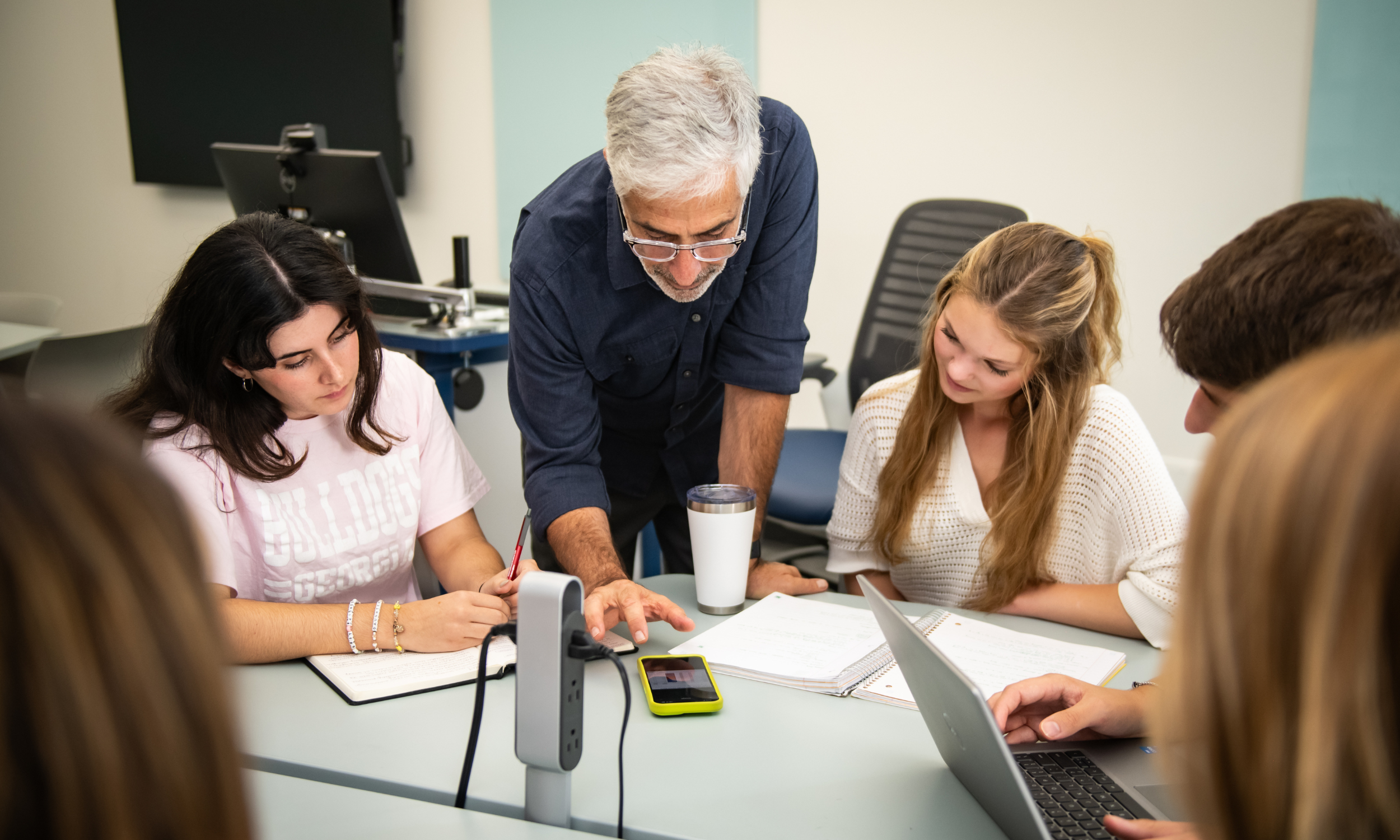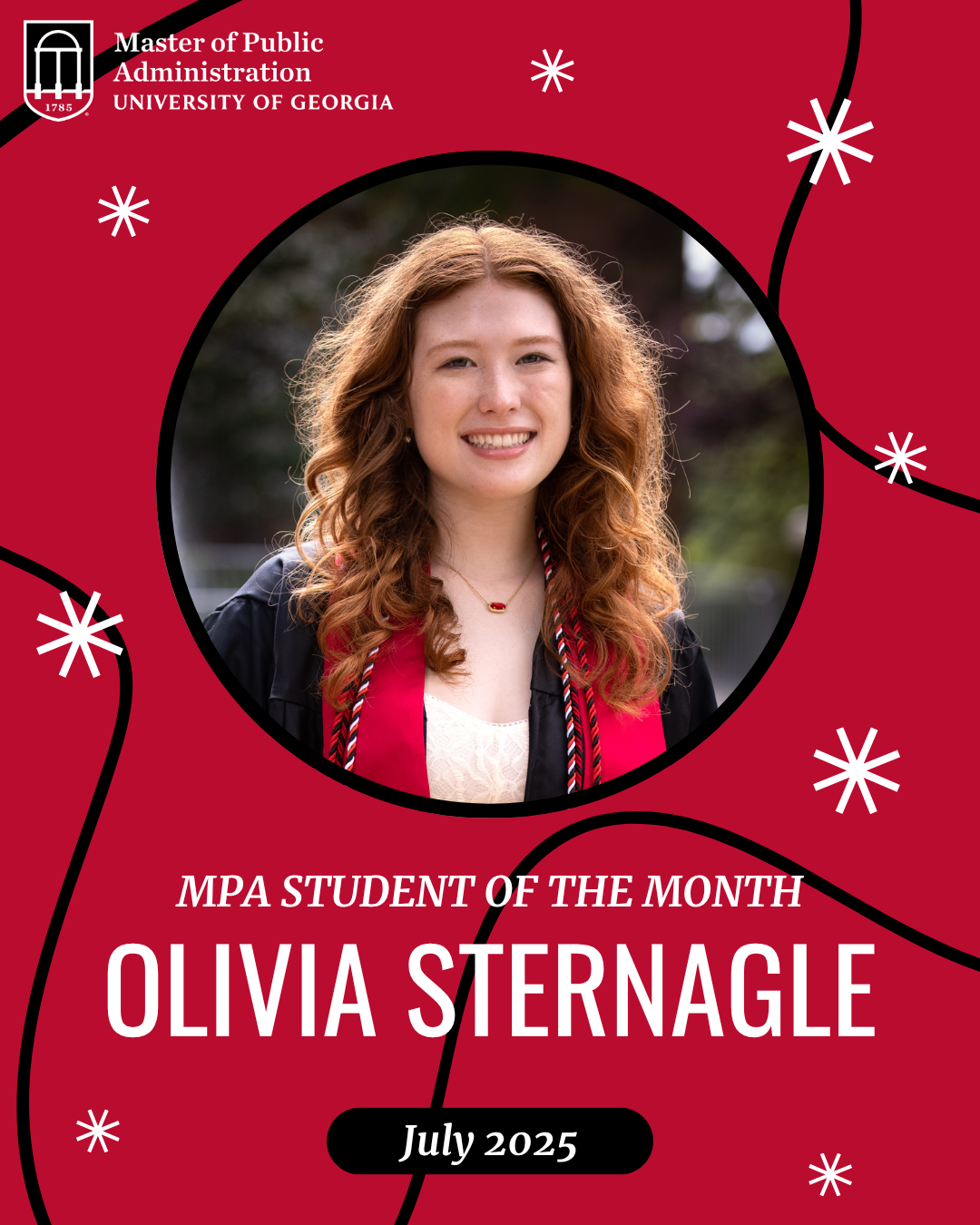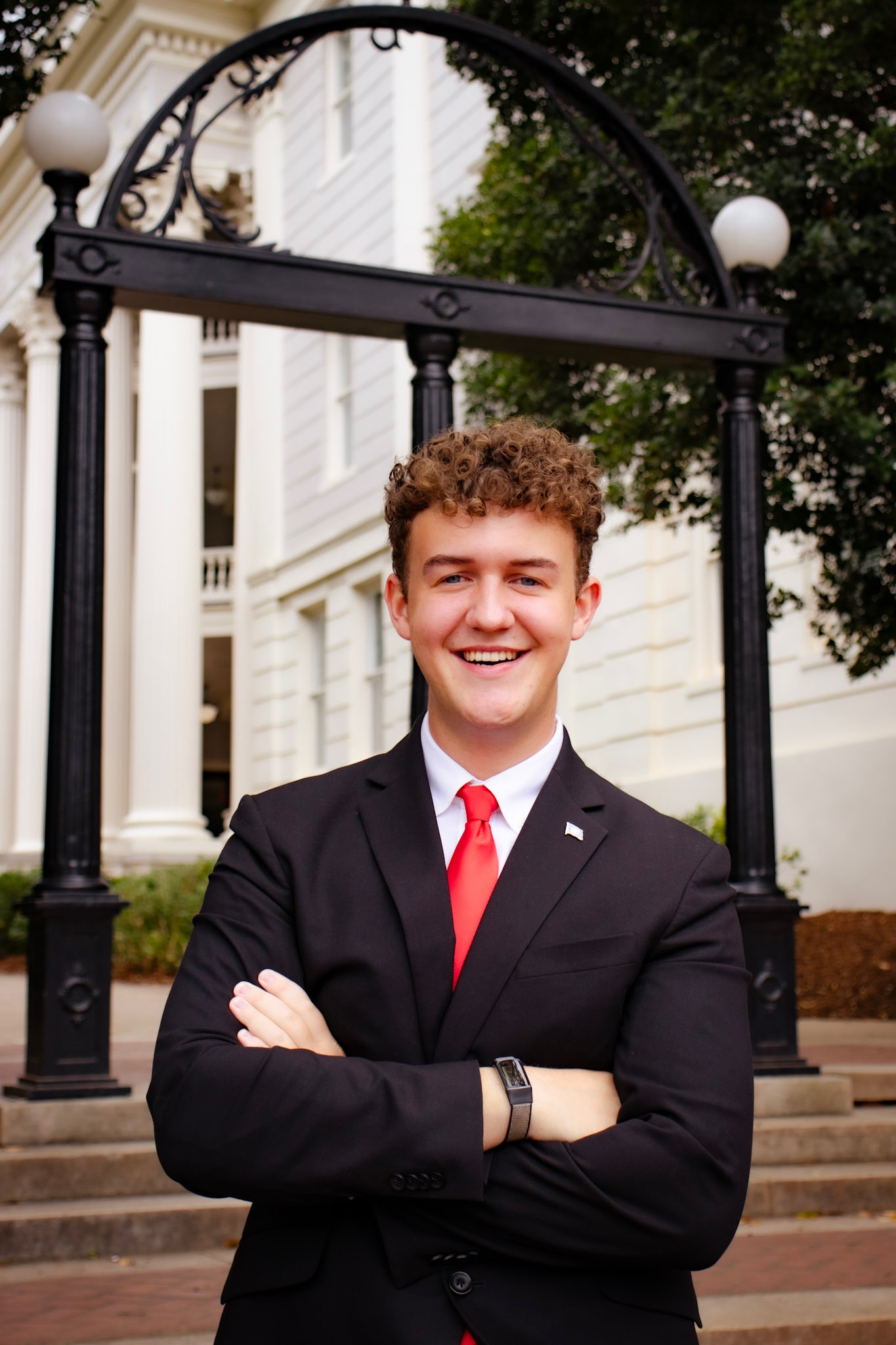This page is for new students attending UGA’s 2022-23 New Student Orientation remotely. Please read through each section below explaining SPIA’s programs, advising, and orientation registration.
Office of Student Affairs & Advising−+
The Office of Student Affairs is the home of academic advising in SPIA. Our staff or advisors are here to help you achieve your academic goals in The School.
- Paul Welch, Director
- Kevin James, Advisor & Graduation Certification
- Joe Davis, Advisor & Internship Credit Coordinator
- Russ Hicks, Advisor
- Kathryn Veale, Advisor & Interim Internship & Recruitment Coordinator
- Sara Kirkpatrick, Advisor
- Misty Stewart, Administrative Support
Paul leads the office; Kevin advises and reviews students for graduation; Joe advises and helps students with internships to add academic components; Russ and Sara advise students; Kathryn advises as well as identifies placements in public agencies for student internships, and Misty supports everyone – she’s the first person you meet in Candler Hall.
SPIA Leadership−+
It is important to know the leadership of the School.
Our dean is Matthew Auer and our Associate Dean is John Maltese. Our advising staff reports to Dean Maltese.
The department heads for our undergraduate majors are Scott Ainsworth in political science and Amanda Murdie in international affairs. Undergraduate coordinators in the departments have responsibility for decisions about course offerings, exceptions, and curricular changes like new courses in each department. They are Jamie Carson in political science and Leah Carmichael in international affairs.
- Department
- Political Science
- Prof. Susan Haire, Department Chair
- Prof. Jamie Carson, Undergraduate Coordinator
- International Affairs
- Prof. Amanda Murdie, Department Chair
- Prof. Andrew Owsiak, Undergraduate Coordinator
- Political Science
In addition to their administrative and leadership duties, they all teach courses in their respective departments, too. Dean Maltese in Constitutional Law, Prof. Haire on law and courts as well as criminal justice studies, Prof. Murdie on terrorism and human security, Prof. Carson on Congressional politics, and Prof. Owsiak on diplomacy and peace studies.
UGA General Education Requirements−+
By now, you should have an idea of the structure of the general education requirements at UGA through the Bulletin Worksheet. It’s ok if you don’t understand it fully now, we’re here to help. There are 6 areas. Areas I-V are generally the same across campus, but VI is unique to each major.
- Areas I-V
- I Basic English and Math*
- II Sciences
- III Quantitative Reasoning*
- IV World Language & Culture*
- IV Humanities & Arts*
- V Social Sciences*
- Area VI Courses Related to Major
- * combine requirements with University or School Requirements
In our advice to you, we’ll look at area VI as a place to identify courses which you’ll likely enjoy and find success. Your advisor will also introduce you to efficiencies in your choices to meet multiple requirements with one course. One way SPIA majors do this is by selecting particular courses in some areas because of the SPIA wide requirements.
SPIA Wide Requirements−+
The School has its own set of requirements for students to meet:
- Literature
- Fine Arts, Philosophy & Religion
- Foreign Language
- Third Term (or “Intermediate I”) for POLS
- Fourth Term (or “Intermediate II”) for INTL
- Economics
- Quantitative
- Statistics or Calculus
- Cultural Diversity
All SPIA students are required to take a literature beyond ENGL 1102; 2 3-credit-hour courses in fine arts (like art history or theatre), philosophy, or religion; a foreign language through the third term course for political science majors and through the fourth term course for international affairs majors; one course in economics from either ECON 2105 “Introduction to Macroeconomics” or ECON 2106 “Introduction to Microeconomics”; a quantitative course from a specific set of choices including STAT 2000 Elementary Statistics and MATH 2250 Calculus; and a course from a broad list for cultural diversity.
A quick word about foreign language: because this requirement is sequential, we encourage SPIA students to begin on it right away. We want you to reach a certain level of competency – not necessarily a number of courses – and you want to avoid interrupting your language studies later in your academic career.
Another word about the quantitative requirement: most SPIA students will find the most efficient choice to finish all quantitative requirements is taking STAT 2000 as it will satisfy Area I, Area III, and the SPIA requirement.
Next, please select the major you plan to pursue in SPIA.
International Affairs Major Requirements for AB Degree−+
It’s possible you may take your first major courses in the spring. Regardless, it’s good to have a general idea of the structure of your major. The coursework in international affairs begins usually in the first year with INTL 1100 “Introduction to Global Issues” in area VI, after which you’ll be ready for the next courses in the major.
- Focus on International Relations & Comparative Politics
- INTL 3200 Introduction to International Relations
- INTL 3300 Introduction to Comparative Politics
- 2 courses in topics in International Relations topics
- 2 courses in topics in Comparative Politics topics
- 4 additional course in International Affairs
- No more than 2 transfer courses may apply towards these 10
In your second year – usually; it can be earlier – students take both INTL 3200 and 3300. Both of these are required for all IA majors and having either one of them is the pre-requisite to all of the other major courses you take. It’s unimportant which one is taken first and they may be taken together after you take INTL 1100. Beyond 3200 and 3300, the major requires 8 additional courses: 2 in international relations topics; 2 in comparative politics topics; and 4 additional INTL courses of your choice. You have a lot of flexibility in the major to take courses you’re interested in and there is quite a bit of overlap in the areas. Ideally, you’re taking at least two major courses each term your third and fourth year to spread your coursework efficiently.
It’s worth noting that the IA major is topically focused. There are no regional specialties built into the major. You can build your own area focus through your choices in foreign language, literature, general education requirements, electives, minors and second majors and with choices within your classes such as paper topics and term projects, for example.
For our transfer students, keep in mind that SPIA allows two transfer courses to apply towards the 10 for the major, but no more.
Political Science Major Requirements for AB Degree−+
While some students may not begin major courses right away, it’s good to have a general idea of the structure of your major. If you’re pursuing a AB degree with a major in political science, then after you take POLS 1101 you’ll be ready for any of the courses in the major. Typically, this happens in the fall of your second year; but it can happen earlier.
The AB major requires 10 courses (¼ of your degree): 2 in political theory, philosophy, and research methods; 2 in American government and politics including law and courts courses; and 6 additional POLS courses of your choice.
- Overview
- 2 courses in research methods, political theory & philosophy
- 2 courses in American government, politics & law & courts
- 6 courses in political science electives
- Differences between the AB and BS programs
- No more than 2 transfer courses may apply towards these 10
You have a lot of flexibility in the major to take courses you’re interested in. Most POLS majors pursue the AB. For our transfer students, keep in mind that SPIA allows two transfer courses to apply towards the 10 for the major, but no more.
Political Science Major Requirements for BS Degree−+
The BS program at UGA is different than at most institutions. It is focused on quantitative methods and data analytics; for most students the AB program is a better fit. Taking time to review the differences between the BS and AB programs at Georgia will make sure students are in the right program and get advised correctly.
While most students may not begin major courses right away, it’s good to have a general idea of the structure of your major. Students pursuing a BS degree with a major in political science begin, of course, with POLS 1101, after which they’ll be ready for any of the courses in the major. Typically, this happens in the fall of the second year; but it can happen earlier. For many of our BS majors the best choice for the second POLS course and first major course is POLS 2000. 2000 is a basic introduction to research methods and formal theory which is the emphasis of the BS degree.
- Focus on Theory, Research, and Analytical Skills
- 2 courses in Research Methods
- 1 course in Formal Political Theory
- 1 additional course in Theory or Methods
- 3 courses in American government, politics & law & courts
- 3 courses in political science elective
- Statistics, Calculus, Geographic Information Systems Required
- Differences between the BS and AB programs
- No more than 2 transfer courses may apply towards these 10
Overall, the BS major requires 10 courses (¼ of your degree): 2 in research methods (this is where POLS 2000 applies); 1 course in formal theory (courses like “Game Theory” and “Social Choice and Elections”); 1 more course from other theory or methods classes; at least 3 classes in American government and politics including law and courts courses; and 3 additional POLS courses of your choice. You have a lot of flexibility in the major to take courses you’re interested in.
While most POLS majors pursue the AB, the BS is an outstanding fit for anyone interested in developing quantitative analytical skills. Most of the time, BS students will arrive with advanced quantitative coursework or credit; if not, then they will want to take both STAT 2000 elementary statistics and MATH 2250 Calculus early in their career at UGA.
For our transfer students, keep in mind that SPIA allows two transfer courses to apply towards the 10 for the major, but no more.
Electives−+
A degree from UGA requires a minimum of 120 credit hours. General Education requirements make up approximately 60 credit hours and all SPIA majors are 30 hours. That leaves at least 30 hours – often more due to “double counting” area VI courses – of general electives.
General electives can be any academic course you choose. The entire universe of academic offerings at UGA are potential elective courses. You get to choose what you take and any academic course offered at UGA will apply.
Many SPIA students opt to pursue second majors, minors, or certificates with their elective hours. In these instances, there are no “perfect” or “recommended” second majors or minors for SPIA students. The best option is to find what one is interested in and pursue that!
SPIA offers four minors:
- International Affairs
- International Human Rights & Security
- Public Policy & Management
- Political Science
SPIA also offers three certificate programs which are similar to minors, but are inter-disciplinary and offer more flexibility:
- Public Affairs Professional Certificate in Applied Politics
- Certificate in Global Studies
- Certificate in Data Analytics in Public Policy
By far, the most common double major for SPIA is political science and international affairs. Beyond that combination, the numbers are much smaller and include journalism, public relations, history, economics, and Spanish; but any other major can work.
Keep in mind, you can use these hours to explore all the university has to offer: second majors or minors are not required.
Your academic advisor can offer insights and information on programs and courses in SPIA and across campus. They will be much more able to help you if you share your interests and goals. They know campus and can help you learn more about the different opportunities UGA offers.
Other Requirements−+
First-Year students should plan to take a First-Year Odyssey (FYOS) course during their first semester. FYOS courses focus on narrow, highly specialized, and interesting topics with a faculty member in a small, seminar setting of around 10 students. They give first-year students an opportunity to connect with a faculty mentor and learn closely the mission and goals of a flagship research university like UGA.
The Residency Requirement for UGA is important in particular for transfer students to know. 45 of your last 60 hours must be UGA courses. No matter how many hours one may transfer to UGA with, they will take at least 45 at UGA. Additionally, within SPIA majors there is a residency requirement that at least 8 of your major courses are taken at UGA.
Another important University-wide requirement is UGA’s “39 hour rule.” The 39 Hour Rule requires at least 39 credit hours for graduation must come from 3000 or higher numbered – upper-level – courses. SPIA majors are almost always completed with 30 hours of upper-level courses meaning our students need to take at least 9 hours of upper-level courses as electives.
A newer requirement which will dictate your selection of general education science courses is the Environmental Awareness Requirement. Your advisor will direct you towards courses which will meet this requirement, particularly those which easily combine to meet Area II.
PE Requirement: UGA students are required to take a PE course before graduation. You only need one and please keep in mind PE courses simply check off a box – they do not count as elective hours nor towards the 120 hour requirement.
Experiential Learning Requirement−+
The University of Georgia has taken a significant step toward ensuring that all of its students engage in the kinds of hands-on experiences that enhance learning and position them for success after graduation.
To this end, all UGA students must meet the Experiential Learning Requirement (ELR). SPIA students meet ELR in one of several ways:
- participation in a SPIA or other UGA-approved study abroad programs
- doing an internship with an academic component
- taking a service-learning course
- taking a research-intensive course
- participation in approved non-credit bearing activities, including Emerging Leaders
- taking one from a few select SPIA courses with applied components
In SPIA, INTL 4622R “GLOBIS Human Rights Lab” is a research-intensive course and courses with applied components include INTL 4415 and 4425R which are courses associated with the Security Leadership Program and POLS 4645E “Applied Civic Engagement.” The SPIA Survey Research Center also offers POLS 5140 “Survey Research Internship” and POLS 5141 “Research in Public Opinion”.
For more information about internship and fellowship programs in SPIA, visit the SPIA Experiential Learning page.
Opportunities in SPIA−+
All SPIA students are added to the SPIADVIS listserv to which we send weekly newsletters about events and opportunities for deeper engagement and applied experiences across the School and University. These weekly newsletters offer current information for SPIA students including announcements about internships and events as well as on-going programs for SPIA students, like:
- The Applied Politics Program & Public Affairs Professional Certificate
- The Richard B. Russell Security Leadership Program
- UGA Washington Semester Program
- GLOBIS Human Rights Lab (INTL 4622R)
- SPIA Emerging Leaders Fellows
- SPIA Experiential Learning Internship Program
- Survey Research Center
- Double Dawgs Programs
- Student Organizations
- Pre-Law Advising & Events
Most of these programs are unique to UGA and SPIA, offering you the chance to work closely with faculty and practitioners in public affairs, policy, and politics.
Academic Advising−+
Advising in SPIA is straight-forward. Per UGA policy, advising is required every fall and spring term before one can register, and occurs by appointment which you make via SAGE, UGA’s advising web scheduler.
You have tools at your disposal to help you understand and plan your degree plans: DegreeWorks is an audit which helps you understand how your credits apply and what requirements you have remaining. DegreeWorks is the tool advisors use to help advise you. The UGA Bulletin – which you may have seen via the Bulletin Worksheet and linked throughout this page – is the official record of the curriculum and requirements students must meet to graduate. It contains information on all the available programs, majors, minors, and course requirements at UGA.
Finally, Athena is used to register for courses, update your programs, find and request your records and much more.
Students should schedule an advising appointment well in advance of registration. Advising appointments in SPIA begin every fall after Labor Day and after MLK Day in the spring. Remember, your advising appointment and registration time are different: you will make your advising appointment via SAGE and the Office of the Registrar will assign you a registration time via Athena.
At your appointment each term you and your advisor will go over how your credits apply and what you left and, hopefully, have fruitful conversations about academic goals and options for you. You can always follow up with them with your questions and with the Career Center for career development and internship questions.
Academic Advising for Orientation 2022−+
For Orientation, advising functions a little bit differently. First-year students will attend an in-person New Student Orientation and be advised face-to-face with the advisor on day 2 in Candler Hall. Transfer students will meet remotely with their advisor over Zoom after completing UGA 101 Modules and this short SPIA Orientation page.
You got to this presentation from our initial e-mail from [email protected] to your UGA e-mail account.
After you complete your review of this webpage, we’ll ask you to follow up with a short quiz. Once we have confirmation you completed the quiz, you’ll be assigned to an advisor in SPIA.
- Transfer students will then be able to view their advisor and their schedule in SAGE so they can make an appointment to be advised remotely.
- First-year students will be assigned to an advisor on day one of in-person orientation and be assigned an advising appointment in SAGE for day two.
During or prior to the appointment with your advisor, they will offer you an overview of how any credits (AP or IB or SAT Subject Tests or Dual Enrollment for first-year students and courses from other schools for transfer students) you have are applying to your program, your remaining requirements, and some specific advice about what to schedule for the next term.
At that point, your advising hold will be removed and you can register for classes.
Follow SPIA−+
SPIA’s social media accounts can be useful follows for information on upcoming events, special opportunities offered by The School, internships, and getting engaged.
Instagram: @uga_spia
Twitter: @uga_spia
Facebook: /spiauga
Conclusion & Required Review−+
Finally, please follow this link to a short quiz on the information presented here. Once we’ve gotten confirmation you’ve done it, your advisor will be in touch via e-mail.
Follow this link to the required SPIA Orientation Review:
https://ugeorgia.ca1.qualtrics.com/jfe/form/SV_9pFMsuYfZgXMvjw
Welcome to UGA and SPIA! Remember: You never bark alone! If you need help, e-mail your advisor! They are here to answer your questions about academics at UGA and help you be successful!
Department Contact
Paul Welch
He/Him
School of Public & International Affairs
Director of Student Affairs
202 Herty Drive, room 103
Office: 706-542-4114
Fax: 706-583-0095
Office Hours:
Office Hours:
Monday thru Friday, 1 to 2 pm and by appointment via SAGE










